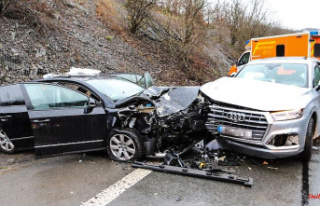There is still a lot of interest in getting a driver's license, but the failure rate has been increasing for years. 37 percent of the learner drivers recently failed the test. According to the Driving Instructors' Association, the current generation has a "completely different perception of traffic" than in the past, mainly because of the use of mobile phones.
According to driving instructors, learner drivers in Germany are less attentive on the road than they were years ago. "The young person who comes to driving school today has a completely different perception of traffic than 20 years ago - namely a lower one," said Kurt Bartels, Vice-Chairman of the Federal Association of Driving Instructors' Associations.
He also attributed this to cell phone use. "Look in a car and see if the children are looking at the road. No, they are looking at their smartphones. They walk and look at their smartphones," said Bartels. That's why young people no longer have the "natural affinity for traffic that they used to have."
According to the association, this is one of the reasons why the failure rate for driving license tests has been increasing for years. The TÜV association recently reported, citing figures from the Federal Motor Transport Authority, that 37 percent of the theory tests had not been passed in the previous year - after 29 percent in 2013. In the practical test for the car driving license class B, the failure rate last year year is 43 percent.
"The volume of traffic and the number of regulations have increased enormously over the past 20 years," said Bartels. In addition, the demands on the learner drivers during the test have increased. "There is a higher failure rate in big cities than in rural areas because the volume of traffic is different."
According to Bartels, interest in driving licenses is still great. "Up and down the country, the driving schools are very busy." The deputy head of the association suspects a reason in the pandemic. People would have spent less money on trips, for example - and "have money left over to get luxury driver's licenses like the one for a motorcycle". In big cities there are also some who prefer to sit in their own car instead of wearing a mask on crowded buses and trains.
"We are concerned and expect that interest in driver's licenses will decrease, also due to the economic fundamentals," he said. Whether there will ultimately be slumps is difficult to predict. "We still don't notice much." During the lockdown in the pandemic, there were also great fears that the number of learner drivers would decrease. But it didn't come to that.












